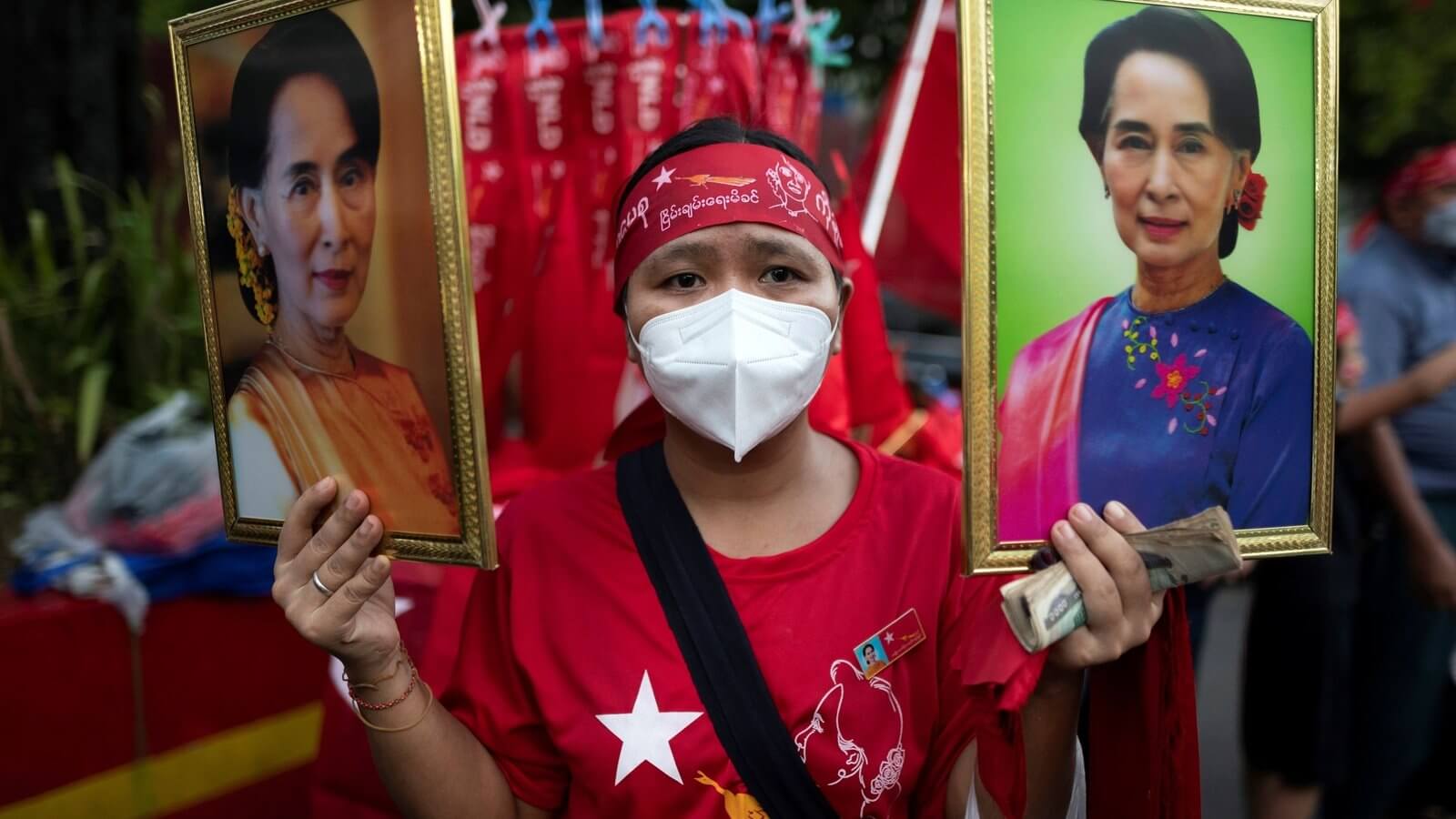In the recently-held parliamentary election, Myanmar’s ruling party—National League for Democracy (NLD)—claimed another resounding victory on Monday, according to its own unofficial tally of votes. This is only the second parliamentary election held since five decades of oppressive military rule in Myanmar ended in 2011.
Aung San Suu Kyi, the chairperson of Myanmar’s ruling NLD party, has won a seat in the House of Representatives (Lower House). The NLD won the last election in 2015 via a landslide, but later entered an uneasy power-sharing agreement with the military, which continues to hold significant influence in the country. This year, they expect to win even more than the total of 390 seats they won in the 2015 landslide win. “For the people, for the party, this is such an encouraging election result,” NLD spokesman Myo Nyunt said.
This year, more than 90 parties competed for seats in the lower and upper houses of Parliament, while there were also elections at the state level. More than 37 million people were eligible to vote, including five million first-timers. However, no reliable official figures were available on voter turnout. A total of 5,639 candidates, including 1,106 candidates from the ruling NLD party and 1,089 from the USDP, vied for 1,117 parliamentary seats in Sunday’s election. The USDP reportedly won three seats—one in the Lower House and two in the regional or state parliaments so far.
As of Tuesday morning, 47 representatives have been elected to Parliament at three levels and the NLD secured 44 parliamentary seats, including 12 in the Lower House, eight in the House of Nationalities (Upper House), and 24 in the regional or state parliaments, according to the UEC. The Election Commission said it would begin to announce results Monday morning. But it may take up to a week to collect all the votes, some of which will come from remote jungle areas.
Suu Kyi, who also holds the title of the State Counsellor, or the nation’s leader, remains a hero at home despite her reputation being tarnished over her controversial handling of the Rohingya crisis. She is no longer considered an icon of democracy in the West after her mishandling of the military crackdown on the Rohingya. Domestically, her government has drawn criticism for failing to adequately address widespread poverty in the nation. At the same time, her administrations has not been able to ease tensions among the country’s fractious ethnic groups. Nevertheless, despite these shortcomings, she remains Myanmar’s most popular politician.
Earlier, Suu Kyi, the 75-year-old Nobel laureate, had contested a seat in the Lower House in Kawmhu township in the 2012 by-election and 2015 general elections. Just as it was five years ago, the NLD’s main challenger again was the military-backed Union Solidarity and Development Party (USDP), which has led the opposition in Parliament.
The United States and other observers like the European Union and Britain commended Myanmar for the vote but criticised the disenfranchisement of more than a million voters, especially the Rohingya minority. Furthermore, the Democracy and Human Rights Party, a Rohingya party, said it was “utterly disappointed” that its people had been disenfranchised. The government does not consider most Rohingya Myanmar citizens but instead deems them migrants from neighbouring Bangladesh, even though many can trace their family roots back many generations.
Myanmar’s Ruling Party Claims Landslide Victory in General Election
Aung San Suu Kyi has won a seat in the country’s House of Representatives. Meanwhile, her party is on target to secure a landslide victory in both houses of Parliament.
November 11, 2020

SOURCE: SHWE PAW MYA TIN / REUTERS
